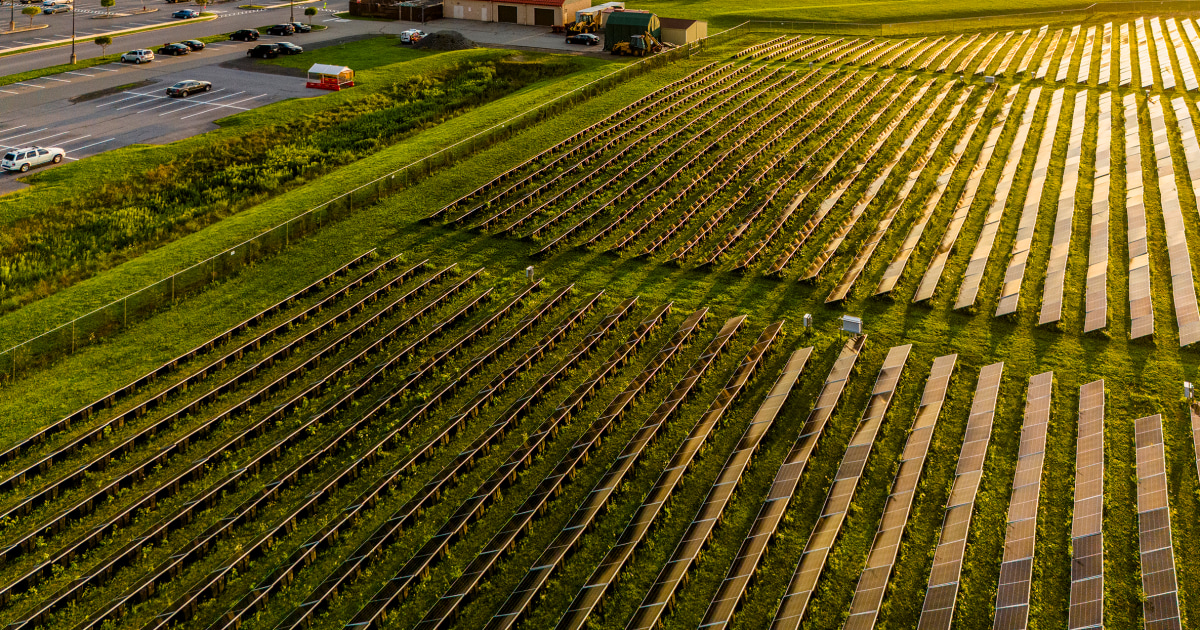The California Supreme Court sided with environmental groups in a Thursday ruling, saying that state lawyers were wrong in their claim that the Public Utilities Commission’s decision to slash rooftop solar incentives could not be challenged.
The unanimous decision sends the case brought by the three groups back to the appeals court.
The groups argue the utilities commission violated state law in 2022 when it cut the value of the credits that panel owners receive for sending their unused power to the electric grid by as much as 80%. The rules apply to Californians installing the panels after April 14, 2023.
The Supreme Court justices said the appeals court erred in January 2024 when it ruled against the environmental groups. In that decision, the appeals court said that courts must defer to how the commission interpreted the law because it had more expertise in utility matters.
“This deferential standard of review leaves no basis for faulting the Commission’s work,” the appeals court had concluded then in its opinion.
The environmental groups argued the appeals court ignored a 1998 law that said the commission’s decisions should be held to the same standard of court review as those by other state agencies.
“The California Supreme Court has ruled in our favor that the CPUC is not above the law,” said Bernadette Del Chiaro, senior vice president at the Environmental Working Group, after Thursday’s decision was published. The other groups filing the case are the Center for Biological Diversity and The Protect Our Communities Foundation.
The utilities commission defended its 2022 rooftop solar decision Thursday.
“We appreciate the Court’s careful attention to the appropriate standard of deference for reviewing CPUC decisions,” Terrie Prosper, a commission spokeswoman, said in a statement. “We are pleased that the CPUC’s decision will remain in effect as an important part of controlling electricity bills.”
Matt Freedman, a lawyer at The Utility Reform Network, a consumer group, said the state Supreme Court ruling could lead to more lawsuits against the commission.
“It has been extremely hard to challenge the commission at the Court of Appeals,” Freedman said.
More than 2 million solar systems sit on the roofs of homes, businesses and schools in California — more than any other state. Environmentalists say that number must increase if the state is to meet its goal, set by a 2018 law, of using only carbon-free energy by 2045.
The utilities commission has said that the credits given to the rooftop panel owners on their electric bill have become so valuable that they were resulting in “a cost shift” of billions of dollars to those who do not own the panels. This has raised electric bills, especially hurting low-income electric customers, the commission says.
The credits for energy sent by the rooftop systems to the grid had been valued at the retail rate for electricity, which has risen fast as the commission has voted in recent years to approve rate increases the utilities have requested.
The state’s three big for-profit electric utilities — Southern California Edison, Pacific Gas & Electric and San Diego Gas & Electric — have sided with commission in the case.
The utilities have long complained that electric bills have been rising because owners of the rooftop solar panels are not paying their fair share of the fixed costs required to maintain the electric grid.
For decades, the utilities have worked to reduce the energy credits aimed at incentivizing Californians to invest in the solar panel systems. The rooftop systems have cut into the utilities’ sale of electricity.
Source link


